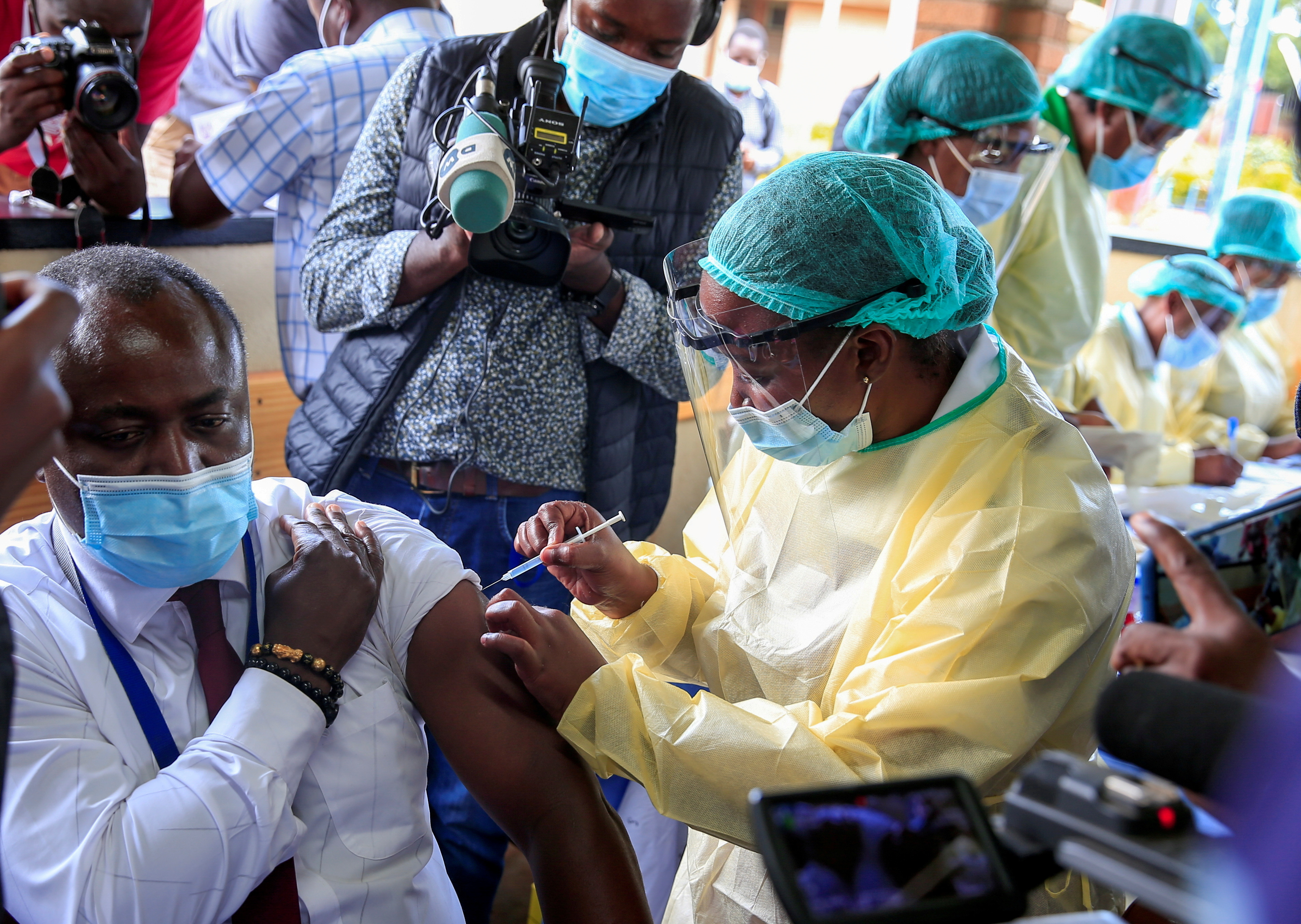An estimated 828 million people were affected by hunger globally in 2021, which is an increase of about 46 million since 2020, and 150 million since the outbreak of the COVID-19 pandemic, according to the 2022 State of Food Security and Nutrition in the World (SOFI) report.
The SOFI report was jointly released by the Food and Agriculture Organisation of the United Nations (FAO), the International Fund for Agricultural Development (IFAD), the United Nations Children's Fund (UNICEF), the UN World Food Programme (WFP), and the World Health Organisation (WHO).
The report presents updates on the food security and nutrition situation around the world, including the latest estimates of the cost and affordability of a healthy diet. It also looks at ways in which governments can repurpose their current support to agriculture to reduce the cost of healthy diets, mindful of the limited public resources available in many parts of the world.
It provides fresh evidence that the world is moving further away from its goal of ending hunger, food insecurity, and malnutrition in all its forms by 2030.
According to the report, after remaining relatively unchanged since 2015, the proportion of people affected by hunger jumped in 2020 and continued to rise in 2021, to 9.8 percent of the world population. This compares with 8 percent in 2019 and 9.3 percent in 2020.
Around 2.3 billion people in the world (29.3 percent) were moderately or severely food insecure in 2021 – 350 million more compared to before the outbreak of the COVID-19 pandemic. Nearly 924 million people (11.7 percent of the global population) faced food insecurity at severe levels, an increase of 207 million in two years.
The gender gap in food insecurity continued to rise in 2021 - 31.9 percent of women in the world were moderately or severely food insecure, compared to 27.6 percent of men – a gap of more than 4 percentage points, compared with 3 percentage points in 2020.
Almost 3.1 billion people could not afford a healthy diet in 2020, up 112 million from 2019, reflecting the effects of inflation in consumer food prices stemming from the economic impacts of the COVID-19 pandemic and the measures put in place to contain it.
An estimated 45 million children under the age of five were suffering from wasting, the deadliest form of malnutrition, which increases children’s risk of death by up to 12 times. Furthermore, 149 million children under the age of five had stunted growth and development due to a chronic lack of essential nutrients in their diets, while 39 million were overweight.
Progress is being made on exclusive breastfeeding, with nearly 44 percent of infants under six months of age being exclusively breastfed worldwide in 2020. This is still short of the 50 percent target by 2030. Of great concern, two in three children are not fed the minimum diverse diet they need to grow and develop to their full potential.
Looking forward, projections are that nearly 670 million people (8 percent of the world population) will still be facing hunger in 2030 – even if a global economic recovery is taken into consideration. This is a similar number to 2015 when the goal of ending hunger, food insecurity, and malnutrition by the end of this decade was launched under the 2030 Agenda for Sustainable Development.
the report also points out that governments could do more to reduce trade barriers for nutritious foods, such as fruits, vegetables, and pulses.
It is estimated that between 702 and 828 million people were affected by hunger in 2021. The estimate is presented as a range to reflect the added uncertainty in data collection due to the COVID-19 pandemic and related restrictions. The increases are measured with reference to the middle of the projected range (768 million).
FAO Director-General QU Dongyu said: “Low-income countries, where agriculture is key to the economy, jobs, and rural livelihoods, have little public resources to repurpose. FAO is committed to continuing working together with these countries to explore opportunities for increasing the provision of public services for all actors across agri-food systems.”
Also speaking, IFAD President Gilbert F. Houngbo said: “These are depressing figures for humanity. We continue to move away from our goal of ending hunger by 2030. The ripple effects of the global food crisis will most likely worsen the outcome again next year. We need a more intense approach to ending hunger and IFAD stands ready to do its part by scaling up its operations and impact. We look forward to having everyone's support.”
On his part, UNICEF Executive Director Catherine Russell said: “The unprecedented scale of the malnutrition crisis demands an unprecedented response. We must double our efforts to ensure that the most vulnerable children have access to nutritious, safe, and affordable diets -- and services for the early prevention, detection, and treatment of malnutrition. With so many children’s lives and futures at stake, this is the time to step up our ambition for child nutrition – and we have no time to waste.”
In his own contribution, WFP Executive Director David Beasley said: “There is a real danger these numbers will climb even higher in the months ahead. The global price spikes in food, fuel, and fertilizers that we are seeing as a result of the crisis in Ukraine threaten to push countries around the world into famine. The result will be global destabilization, starvation, and mass migration on an unprecedented scale. We have to act today to avert this looming catastrophe.”
According to WHO Director-General Tedros Adhanom Ghebreyesus: “Every year, 11 million people die due to unhealthy diets. Rising food prices mean this will only get worse. WHO supports countries’ efforts to improve food systems through taxing unhealthy foods and subsidizing healthy options, protecting children from harmful marketing, and ensuring clear nutrition labels. We must work together to achieve the 2030 global nutrition targets, to fight hunger and malnutrition, and to ensure that food is a source of health for all.”












